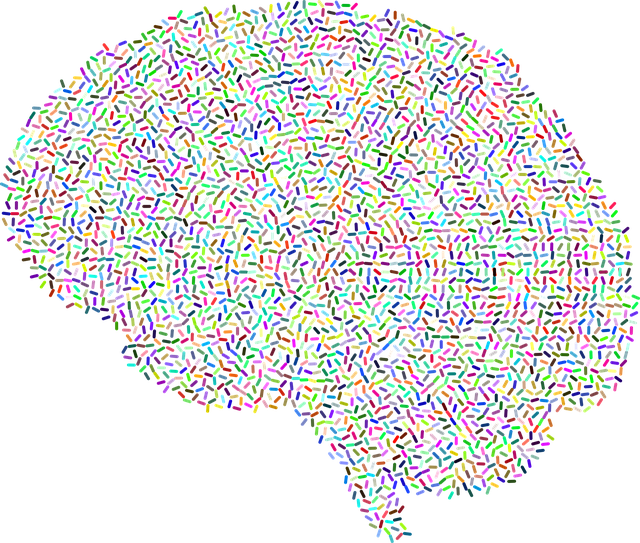Understanding Mental Health Data is a foundational step in therapeutic approaches like Centennial Acceptance and Commitment Therapy (ACT), which promotes acceptance of internal experiences and values-driven actions. This process involves collecting, cleaning, and standardizing data from patient records, surveys, and clinical assessments to enhance integrity and accuracy. Integrating Risk Management Planning and stigma reduction efforts further improves data quality, enabling personalized therapy tailored to cultural backgrounds and individual journeys towards mental wellness. Through data analysis, ACT reveals deeper insights for nuanced understanding of mental health conditions and targeted interventions.
Mental health data analysis is a powerful tool for understanding and improving well-being. This article explores three key aspects of this process, focusing on Centennial Acceptance and Commitment Therapy (ACT) as a framework for interpretation. We begin by examining the collection and preparation of mental health data, then delve into how ACT principles can be applied to analyze these insights. Finally, we discuss translating findings into actionable steps for personal growth and clinical applications.
- Understanding Mental Health Data: Collection and Preparation
- Applying Centennial Acceptance and Commitment Therapy (ACT) in Data Analysis
- Interpreting and Utilizing Findings for Personal Growth and Clinical Applications
Understanding Mental Health Data: Collection and Preparation

Understanding Mental Health Data is a foundational step in any analysis process, especially when exploring therapeutic approaches like Centennial Acceptance and Commitment Therapy (ACT). The journey begins with data collection, which involves gathering information from various sources such as patient records, surveys, and clinical assessments. This raw data holds insights into individuals’ mental health states, treatment responses, and demographic factors.
Preparation of the collected data is a critical phase that ensures its quality and consistency. It includes cleaning the data to handle missing values, outliers, and errors, as well as organizing it into structured formats suitable for analysis. Standardized measures and tools are often employed to ensure comparability across different datasets. For mental health professionals, integrating Risk Management Planning techniques during this stage can mitigate potential risks associated with sensitive patient information. Additionally, fostering a culture of Mental Illness Stigma Reduction Efforts through inclusive data practices can lead to more accurate interpretations and improved patient care.
Applying Centennial Acceptance and Commitment Therapy (ACT) in Data Analysis

The Centennial Acceptance and Commitment Therapy (ACT) offers a unique lens through which to analyze and interpret mental health data. This therapeutic approach encourages individuals to accept their internal experiences, such as emotions and thoughts, while committing to actions that align with personal values. When applied to data analysis, ACT can help identify patterns in behavioral responses and emotional states, providing valuable insights into what drives an individual’s choices and actions. By fostering cultural sensitivity in mental healthcare practice, through Healthcare Provider Cultural Competency Training, ACT promotes a non-judgmental and flexible mindset among practitioners, enabling them to tailor interventions to diverse cultural backgrounds and personal experiences. This is particularly crucial in enhancing mental health awareness and ensuring inclusive care for all.
In the context of data analysis, ACT’s focus on present-moment acceptance and cognitive flexibility allows researchers and healthcare providers to uncover deeper meanings within collected data. By recognizing the interplay between thoughts, feelings, and behaviors, ACT helps navigate complex emotional landscapes. This approach not only facilitates a more nuanced understanding of mental health conditions but also guides the development of targeted interventions. Incorporating cultural competency training ensures that these analyses are sensitive to the diverse experiences and perspectives of individuals seeking mental healthcare, ultimately enriching the overall practice and outcomes in this vital field.
Interpreting and Utilizing Findings for Personal Growth and Clinical Applications

When interpreting mental health data, the findings can be instrumental for both personal growth and clinical applications. For individuals seeking self-improvement, understanding their emotional and behavioral patterns through data analysis allows for more awareness and acceptance, principles central to Centennial Acceptance and Commitment Therapy (ACT). This therapy encourages individuals to embrace their experiences without judgment, fostering a sense of flexibility that promotes well-being and life satisfaction. By identifying triggers and understanding the impact of past events or current stressors, individuals can develop personalized strategies for managing their mental health.
In a clinical setting, data interpretation guides therapists in tailoring treatments to meet individual needs. For instance, insights derived from analyzing trauma histories can lead to recommendations for specific Trauma Support Services or Emotional Healing Processes. Additionally, identifying stress reduction methods that resonate with an individual’s personality and lifestyle can enhance the effectiveness of treatment plans. This tailored approach not only accelerates progress but also ensures that interventions align closely with patients’ unique journeys towards mental wellness.
Mental health data analysis is a powerful tool for understanding and improving well-being. By applying methods like Centennial Acceptance and Commitment Therapy (ACT), we can interpret data to foster personal growth and enhance clinical practices. Through proper data collection, preparation, and insightful interpretation, we have the potential to revolutionize mental healthcare, making it more personalized and effective for all.














